Why the single, separated and widowed are moving cities and changing jobs to make a home with their best friends, forging a lifelong companionship free of ‘stress and drama’ of marriage
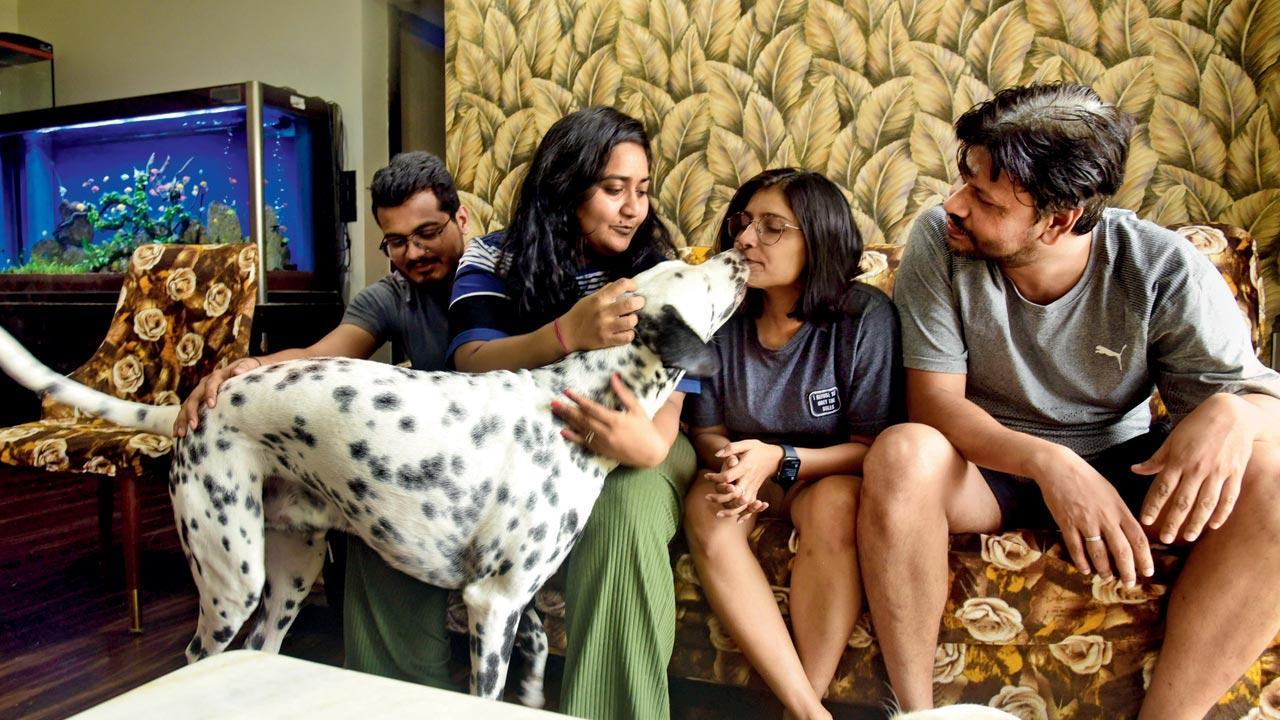
Tanvi Patil (second from left) and her flatmates Kiran and Nawab (third and fourth from left), who co-parent their two dogs Bella and Simba, found stability in each other even when their respective romantic relationships ended. Their equation helps them retain their individuality and privacy. Pic/Atul Kamble
Rows of coconut trees, the slower pace of a semi-urban town, and the prospect of living with friends she has known for 30 years compelled Rupsa Mallik to say goodbye to Gurgaon. When she felt weary from the grief of the COVID-19 pandemic, Mallik decided to quit her full-time job at a feminist human rights organisation and move close to Mysore, where she and six friends jointly bought land a few years ago.
ADVERTISEMENT
Mallik, a single mother and consultant for nonprofits, rents a house in the town with two other friends from this circle, so that they can watch as their four-unit communal housing dream comes to life. With common areas for cooking, dining and leisure, it has the perfect balance architecturally speaking—giving a group of strong individuals the joys of a shared existence, as well as their own personal space.
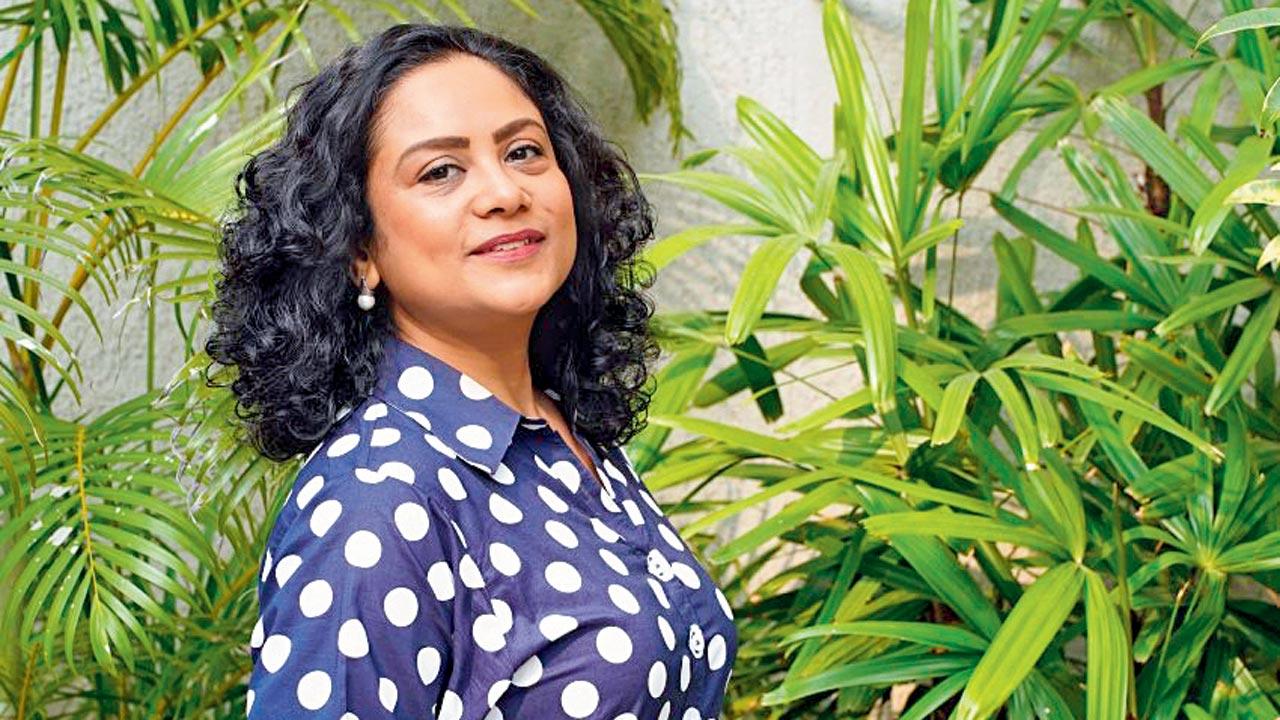 Suranjana Ghosh, Mumbai-based professional
Suranjana Ghosh, Mumbai-based professional
Mallik is among a growing lot of urban Indians in their middle age who are single and cohabiting with friends—driven by the impulse to spend their sunset years with their chosen family instead of relatives. Like Mallik, these individuals have been single their whole lives, or divorced, and in search of companionship that is different from romantic love. The reality of ageing and emotional isolation has prompted many to turn to peers and college batchmates, former flatmates and the godparents of their children, as sources of support and security.
The last few years have been witness to two significant developments in hyper urban pockets of the country: A government survey mapping data from 2011 to 2019 found that the proportion of single people increased by six per cent (see box). Simultaneously, the population of senior citizens in the country is predicted to double by 2050. As more Indians opt for living arrangements that are unconventional and works-in-progress, mid-day found that choosing this lifestyle comes with its own bureaucratic hassles but a great deal of satisfaction.
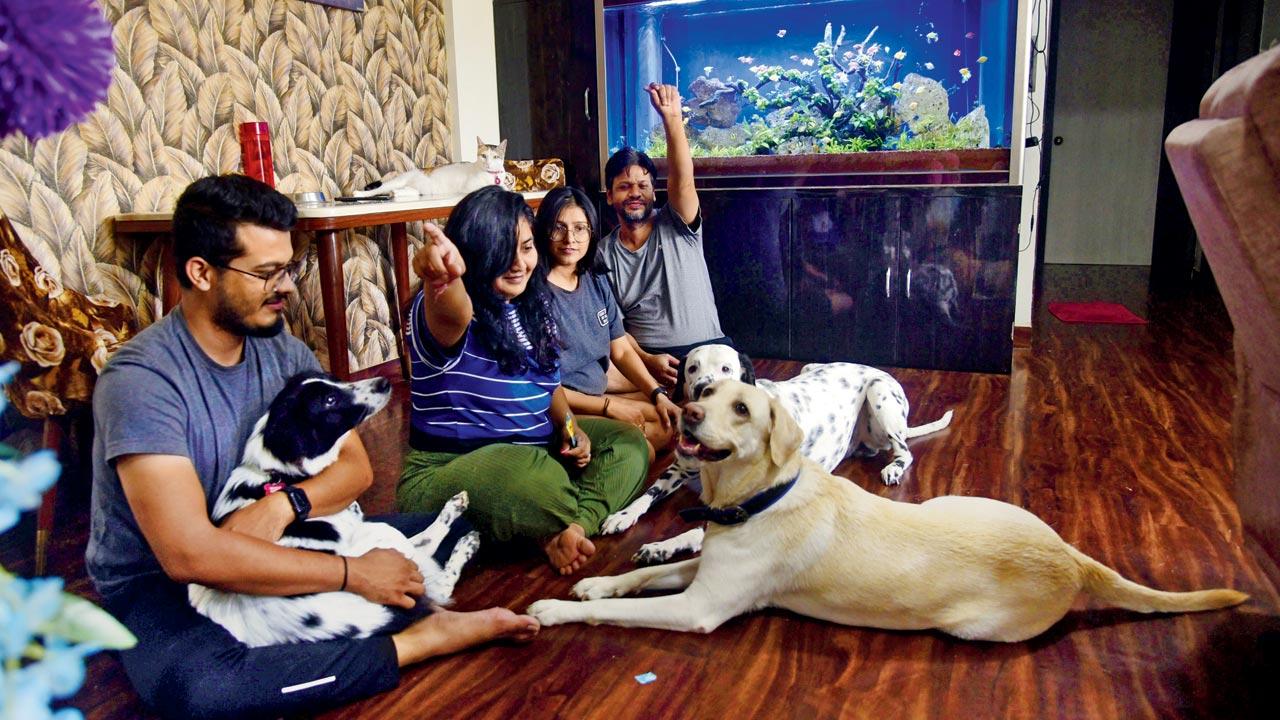 Patil, Nawab and Kiran look forward to their future home—a few hours away from the city— where they can live the village life with their dogs Bella and Simba. Pic/Atul Kamble
Patil, Nawab and Kiran look forward to their future home—a few hours away from the city— where they can live the village life with their dogs Bella and Simba. Pic/Atul Kamble
Much like married couples and nuclear families, friends who live together carve out their own rituals and routines. Unsurprisingly, food is a favourite. Writer and editor Anushree Majumdar has a morning coffee routine with her best friend Parry on most days of the week. “I go downstairs; I have time to cook more than she does, so I enjoy cooking for two and she’s thrilled because before the pandemic, I made Maggi—the end!” Majumdar says. She moved from Mumbai to South Delhi in 2023 when Parry, a photojournalist, mentioned that the flat above hers was available. The decision to quit her job so she and Parry could live in a “bunk bed” situation was instinctual.
“He enjoys cooking and cooks a lot more consistently now that I share the house with him, because he feels that he should feed me. If it weren’t for him, I wouldn’t be eating my meals so regularly and I’d probably skip breakfast,” a single mother of two who spoke to us for this article but requested anonymity, says. She shares an apartment with her best friend and former business partner in Kochi.
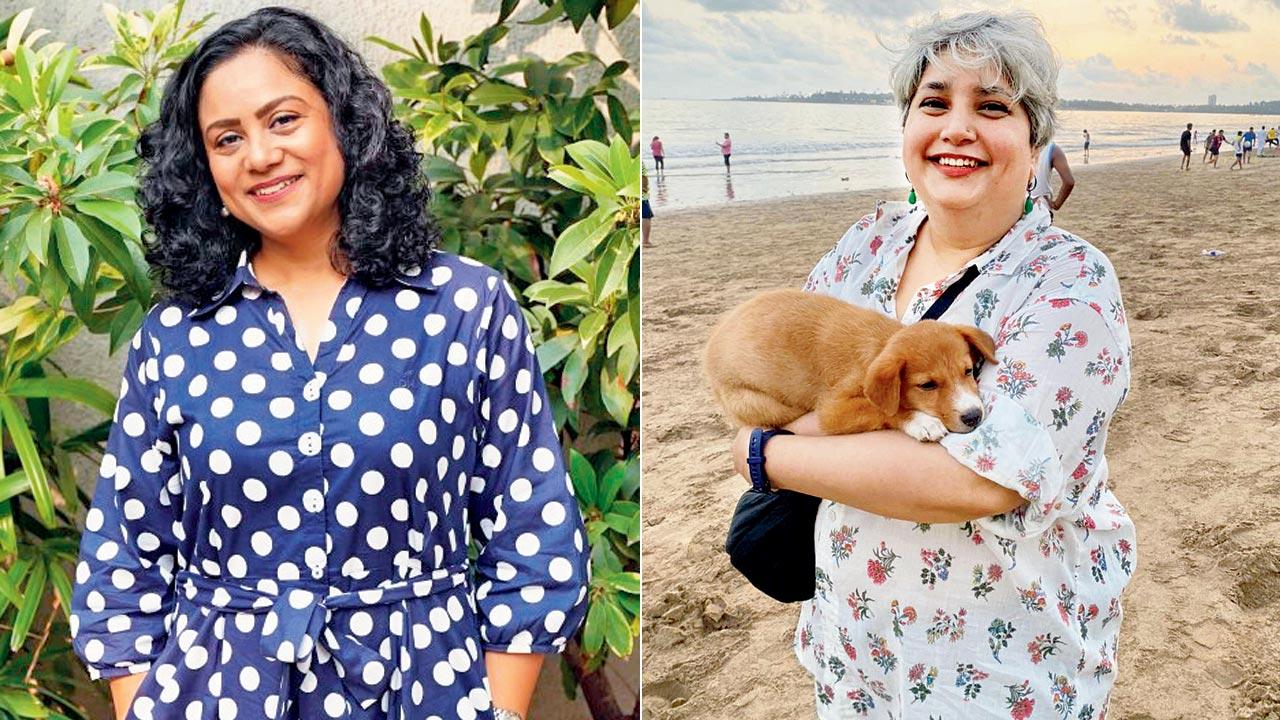 Aside from making financial investments for the future, nurturing relationships among friends is essential too, says Suranjana Ghosh. Pic/Aishwarya Deodhar; (right) Writer and editor Anushree Majumdar says the love, trust and respect among her closest friends has stood the test of time
Aside from making financial investments for the future, nurturing relationships among friends is essential too, says Suranjana Ghosh. Pic/Aishwarya Deodhar; (right) Writer and editor Anushree Majumdar says the love, trust and respect among her closest friends has stood the test of time
Across these conversations, what emerges is a kind of partnership and companionship unburdened by the usual trappings of marriage, like “stress or drama”. Tanvi Patil, a senior business analyst based in Bhiwandi, was once keen to get married until she realised it isn’t her cup of tea. For the last six years, she has lived with Kiran and Nawab—two colleagues from a previous job who she considers family. They began renting an apartment together for the convenience of it, but are now inseparable—and parents to two rescued dogs. “By living together, we have maintained a sense of privacy and our individuality, unlike a conventional relationship or marriage. There’s no drama, and we’re not answerable to one person for everything,” she explains.
Majumdar, whose parents live in Kolkata, spent a gruelling few years in Mumbai when she contracted COVID-19 and lived by herself. Though they were always open to flying her out to Delhi or sending care packages across cities, Majumdar’s friends knew that the decision to move out was hers to make. “One of the things my friends and I have experienced as we’ve grown older is there is no competition between us. We lift each other up, we commiserate when things don’t work out. Everybody is doing their best, everybody needs help now and again, and a happy friend is less stress!”
 Rupsa Mallik and her friends rent an apartment in Mysore to oversee the construction of their communal housing project
Rupsa Mallik and her friends rent an apartment in Mysore to oversee the construction of their communal housing project
The single mother from Kochi’s flatmate and business partner, finds great comfort in the uncomplicated nature of his friendship with her. Her children—whom she co-parents with her ex-husband—have adjusted to their new home too, after some initial concern over the lack of space. “There were clear boundaries and equal
responsibilities from the start,” he says. She calls him her lighthouse. “Even in the worst situations, he can guide me home. Being able to come home and find him there means a great deal to me. We’ve surpassed labels and become family to each other now,” she declares.
He has been her emergency contact for years, before they even began co-habiting. She is reluctant to ask for help usually, even from him, but he just began turning up when she needed a hand. “Even when he was married, we would often accompany each other during our doctors’ visits. Now, his doctors recognise me well and expect that I’m going to be there for him,” she explains.
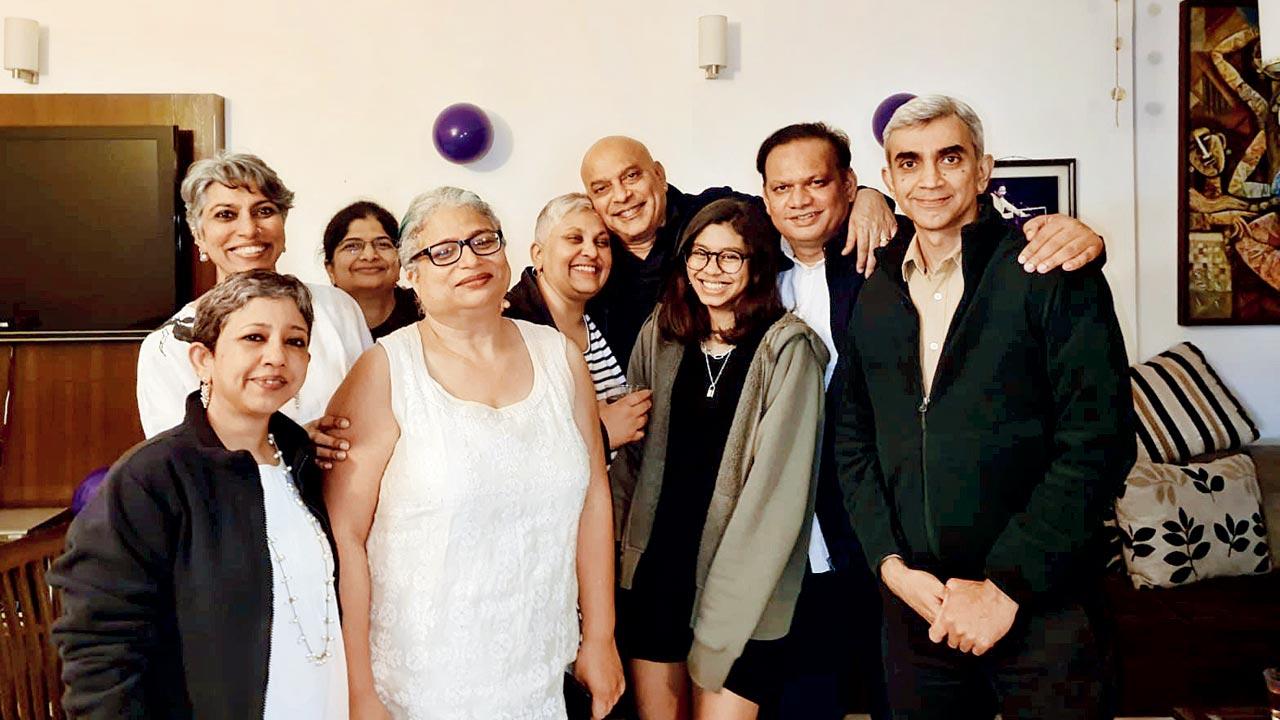 Mallik (first from left) with her circle of friends who purchased land together—Chandrika, KC, Deepa, Sarju and Sanjiv—and her daughter
Mallik (first from left) with her circle of friends who purchased land together—Chandrika, KC, Deepa, Sarju and Sanjiv—and her daughter
A community mindset has emerged among Majumdar’s closest friends in the last five years. “We’ve been there for each other without too much judgement. We’ve watched our parents pass on, survived professional challenges, dealt with concerns about our respective health; age and experience has brought us hard-won wisdom,” she says.
Friends in chosen families assume a greater sense of responsibility towards each other—often their choice to live together is guided by their ability to pitch in during times of health and other emergencies. Crucially, this can also involve changes in one’s own biological family. For Mallik, this was the decision to enrol her daughter in boarding school and move to Mysore. For another single mother from Mumbai whom we spoke to, it meant having an open conversation with her son, who is pursuing a Master’s degree outside India. “For many people in my generation, there has been an urge to free our children from the burden of constantly caring for us. Similarly, if my son decides to have children of his own, I’d love to spend time with them and take care of them—but as a woman of today, that’s not all I want to do,” she says.
The hurdles that come in the way of living with your friends are met with creative solutions. Since Mallik and her housemates couldn’t open a joint bank account—as people who are unrelated to each other—they devised the idea of a common account, which could be used for household expenses but would remain in one person’s name. For Patil, Nawab and Kiran, having a car at their disposal became essential, especially so that they could ferry their dogs to the vet. Nawab purchased the car, with Patil and Kiran paying for related expenses and its upkeep.
After her divorce, the single mother’s first-of-kin are her two children, who are 11 and 17; this caused her to reflect on the role her friend and flatmate can play, should she face a medical emergency. “I’ve told him what the way forward should be, in the event of an accident or coma. Perhaps I’ll have to think of ways to do this legally, but at least he’s aware of what needs to be done. So even if my children have to take a decision, he can guide them,” she says.
When Patil, 31, took a four-month-long break from work during the lockdown, Nawab, 38, and Kiran, 31 supported her financially, no questions asked. Theirs is a partnership of evolving levels of commitment that now includes a jointly-purchased plot a few hours away from Mumbai—where they intend to build a home and adopt a slower pace of life. What has held them together all these years are their two dogs, Bella and Simba; Bella walked into their lives as a five-month-old puppy in 2018.
“Though life is unpredictable, our current living arrangement is ideal for the long term, especially since caring for and rescuing animals is our shared passion and it’s what brought us together in the first place. If one of us isn’t in the city, we can rely on the other two to take care of the dogs and look after them—it won’t be as easy to trust others with the same responsibility,” Patil explains.
Though the trio, and Mallik and her friends, have chosen to retire in semi-urban or rural settings, co-living spaces offered by builders like the Ozone Group and ventures like COVIE are also emerging in cities—building on the options that were previously on offer, like retirement homes and assisted living facilities. The Ozone Urbana project, a gated retirement community comprising 172 senior-friendly apartments, was set up in Bengaluru and claimed to offer lifestyle and care facilities suited for those who are 50+. COVIE Plus, on the other hand, is an upcoming project that will build on the venture’s reach in Pune and Mumbai.
In young friendships, the matter of money can be sticky. But age and the wisdom that it brings seems to bestow clarity on those who are living with their friends. While some prefer splitting costs equitably, others like Mallik and her housemates pitch in when one of them cannot—creating an empathetic environment for everyone involved.
For a shift in the way we look at chosen families, what is needed is a greater focus on unconventional life choices—of people who marry late, don’t marry at all, or get divorced or are widowed. Informally, in the absence of laws and policies, singles are left to prepare for the future by themselves. “We’re told about the importance of saving money and making wise investments that will sustain us in the years when we can’t work as actively as we do now. But I think investing in relationships outside of romance—based on shared interest or old networks [like school or college] which could be revived—is essential too. We should introspect and ask if these are friendships we can count on, 20 years from now,” says Suranjana Ghosh, who heads a non-profit organisation and lives in Mumbai.
Ghosh, who is in her late 40s, has been single for the last seven years after her divorce. Since she doesn’t see herself being partnered soon, she realised that her life today resembles what it may look like as she ages. “I look at the coming years through different lenses—as a woman, as someone with an acquired disability as well. I have to consider what access to medical care will look like, but also, how safe I’m going to be while I stay alone,” Ghosh says, adding that Mumbai is a city that is extremely user-friendly for single women who want to carve out individual identities and find a sense of security.
Research by Ketaki Chowkhani, an assistant professor at Manipal University whose work has explored singledom in India, shows that those who have been single their whole lives have a richer network of friends. “These
networks have to be consistently nurtured over decades,” she adds. This is in sharp contrast to “greedy marriages”, where individuals think they can depend on their significant other for multiple needs. This can sometimes prevent them from investing in other relationships.
Majumdar says her closest friends are unmarried and single; they have all embraced the idea of the chosen family. “Something that is already prevalent in the queer community around the world [is now seeping into heterosexual relationships too]. The love, the trust and the respect we have for each other has stood the test of time. Is it easy? Not always.
Familiarity can breed a lot of feelings but we are mindful that contempt should not be one of those things,” she explains.
Cohabiting with their friends has allowed many of these individuals to continue pursuing romantic love, but not at the cost of their current living arrangement. “Our friendship has been stable and reliable even when our relationships have ended and our partners walked out of our lives,” Patil observes. In the case of the Kochi friends and flatmates, they have mutually set certain ground rules about bringing their dates home.
mid-day’s experience of speaking to individuals for this article reveals a gendered divide, with more women coming forward with stories. This stems from the reality that it is men who more often than not tend to benefit from marriage rather than women, Chowkhani believes. “Some research has shown that the happiest segment of the population is women who are never married, and without children. Housework and taking care of children is largely done by women, which benefits men. If they are financially independent, women stand to gain more from being unmarried, which allows them to have greater autonomy,” she says. Living with or close to a friend perhaps comes from the need for safety and to be looked after in relationships which do not replicate the gender roles of marriage, and where women can retain their independence, Chowkhani concludes.
17.2-23%
Rise in number of single persons in India between 2011 and 2019, according to a government-led survey
Number of single Indians rising
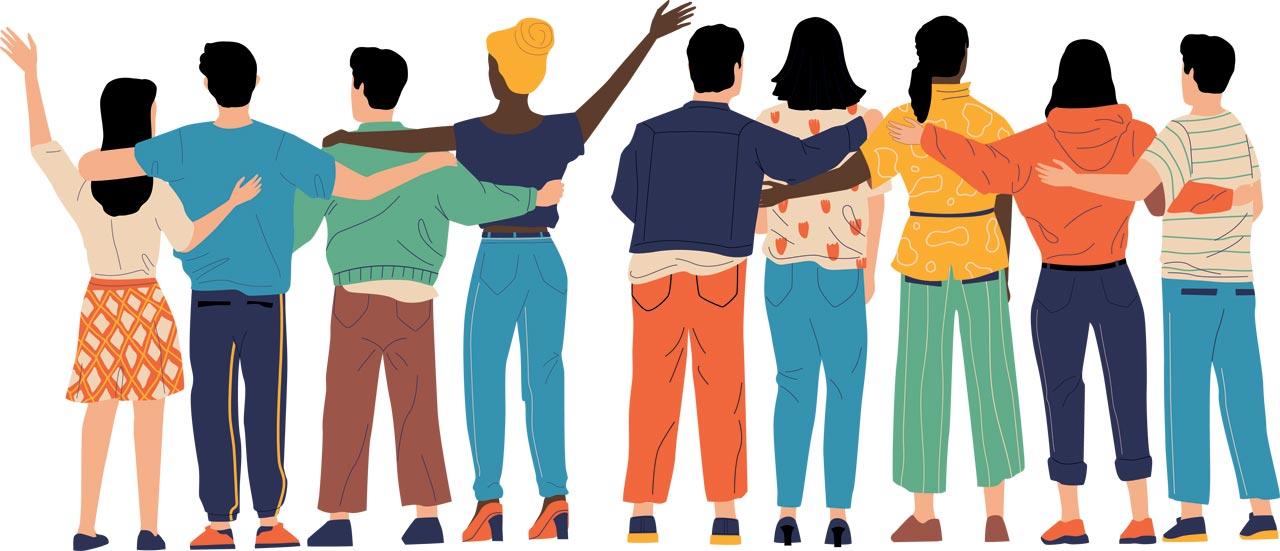
According to a government survey, a growing number of Indians are preferring to remain single across genders. In the eight years from 2011-2019, the number of single persons aged 15-29 years has increased from 17.2 per cent to 23 per cent. The number of single men has gone up from 20.8 per cent in 2011 to 26.1 per cent in 2019. Among women, the proportion of unmarried females increased from 13.5 per cent in 2011 to 19.9 per cent in 2019.
 Subscribe today by clicking the link and stay updated with the latest news!" Click here!
Subscribe today by clicking the link and stay updated with the latest news!" Click here!








